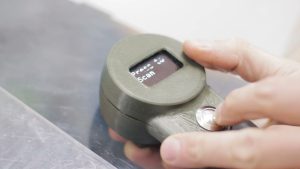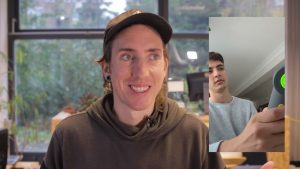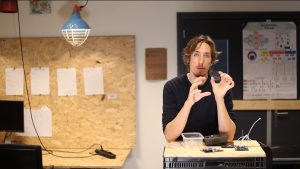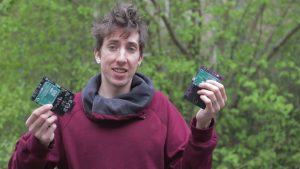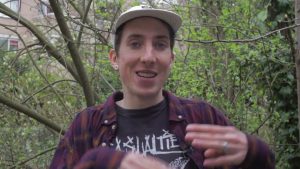The Plan.
The plan for 2022 is to make the best possible open-source scanner!
A scanner that can identify the five most common plastics, being: PET, PE, PVC, PP, and PS.
This will probably not be a full-fledged, ready-to-buy product, at the end of the year. It will be a device intended for makers, researchers, engineers, and other plastic-sorting pioneers to use, study, improve and build upon.
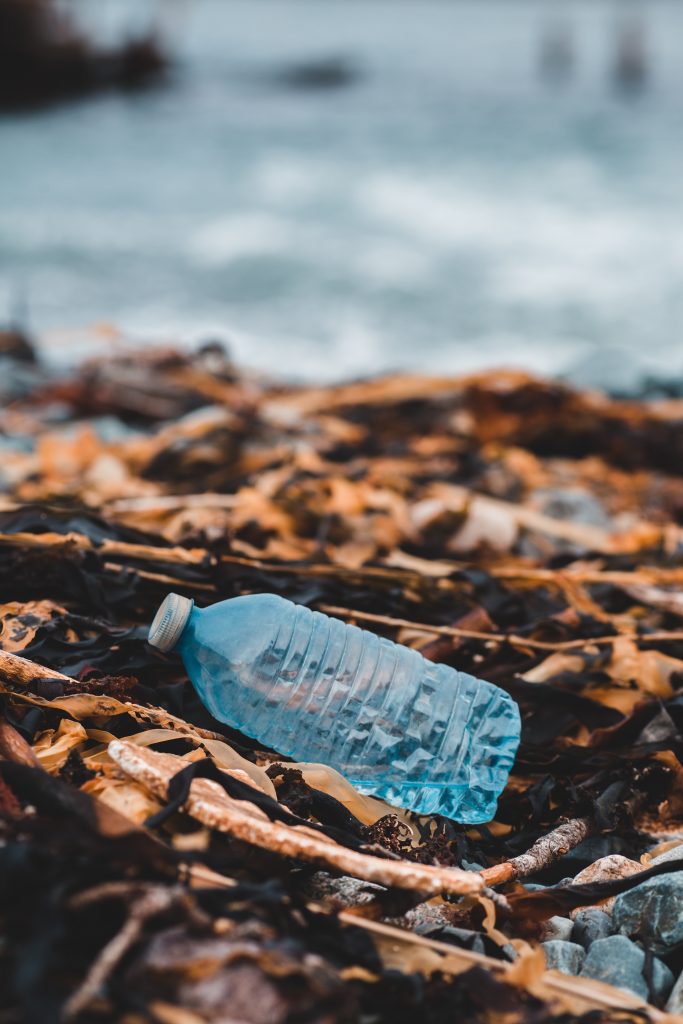

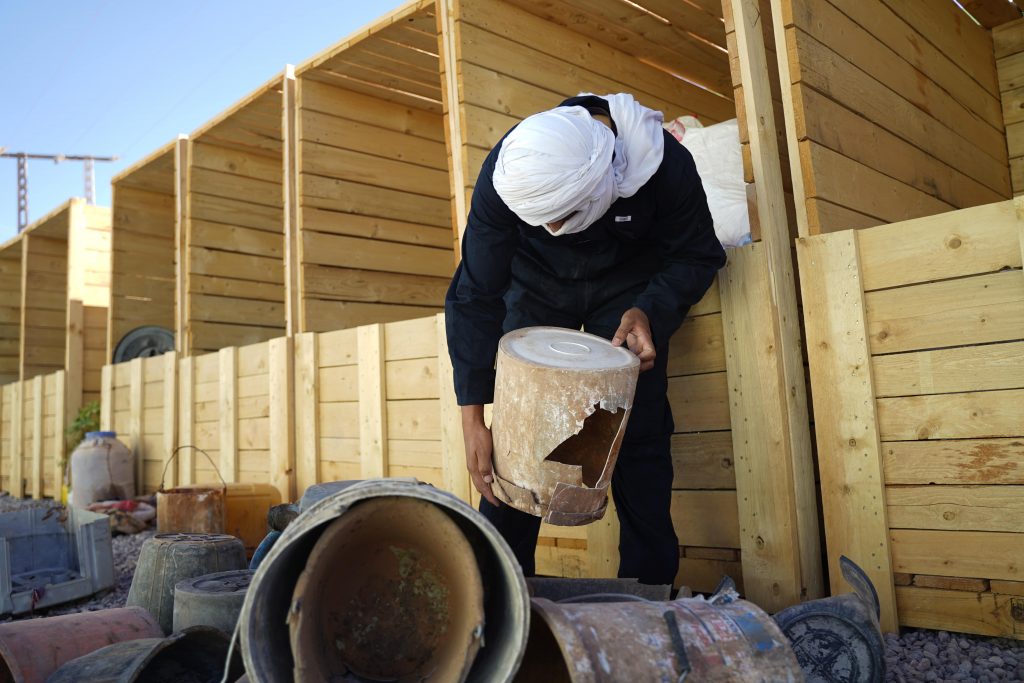
Once we have released a good open-source Plastic Scanner and when we are happy with the quality of the device, we will work on the commercialization of the Plastic Scanner. So we can sell you something we stand behind.
The Time.
Q1
January till March
At the beginning of 2022, we first take a step back. So far it has been mostly me and some friends working on the Plastic Scanner. For 2022 we want to open this up to the world! In order for others to get involved and join the development of the plastic scanner we first need to document the essentials. And make sure we document the process properly.
The goal for the second quarter of 2022 is to make the best possible do-it-yourself Plastic Scanner. This means we will be making a lot of prototypes with various components and sensors to see what works best. We will try to keep cost and replicability in mind, but the quality of scanning is our first priority.
Q2
April to June
Q3
July to September
The learnings from the second quarter then need to be transferred into the best value Plastic Scanner. A Plastic Scanner that can identify in most cases, but one which is still simple to build and cost-effective.
In order for the Plastic Scanner to make a real impact, documentation is crucial. Documentation, documentation, documentation. So the last quarter of 2022 is purely focused on documentation and how-to videos. Just to make sure we can transfer our knowledge to you.
Q4
October to December
Throughout the year we will keep you posted about the progress, this can be through a video, or with a blog post. We hope this makes you excited about the project and creates a platform where together we can fight plastic waste and develop the best possible open-source Plastic Scanner!
The Outcome.
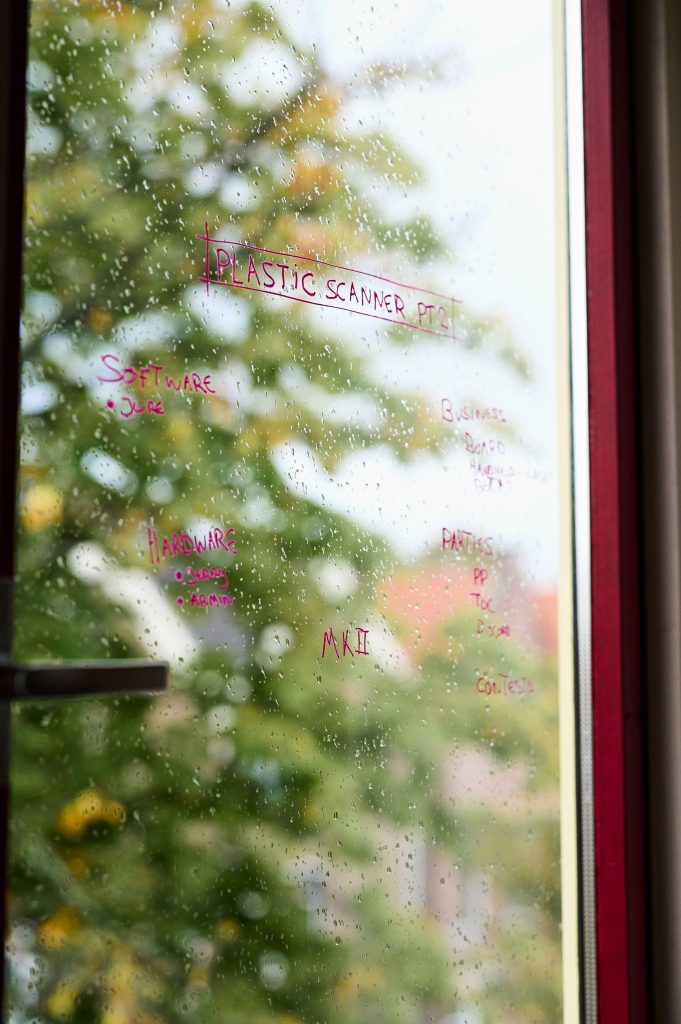
No matter the success rate of the Plastic Scanner itself, in 2022 we will learn a lot. The main goal of this project is to capture this and share it. Whether it is a monthly video about the project, an explanation of the theory, or a prototype that works (or not). As long as we can translate our findings to you, we are happy.
At the end of the year, we will have 12 videos, a lot of documentation, how-to videos, and fingers crossed a plastic scanner!
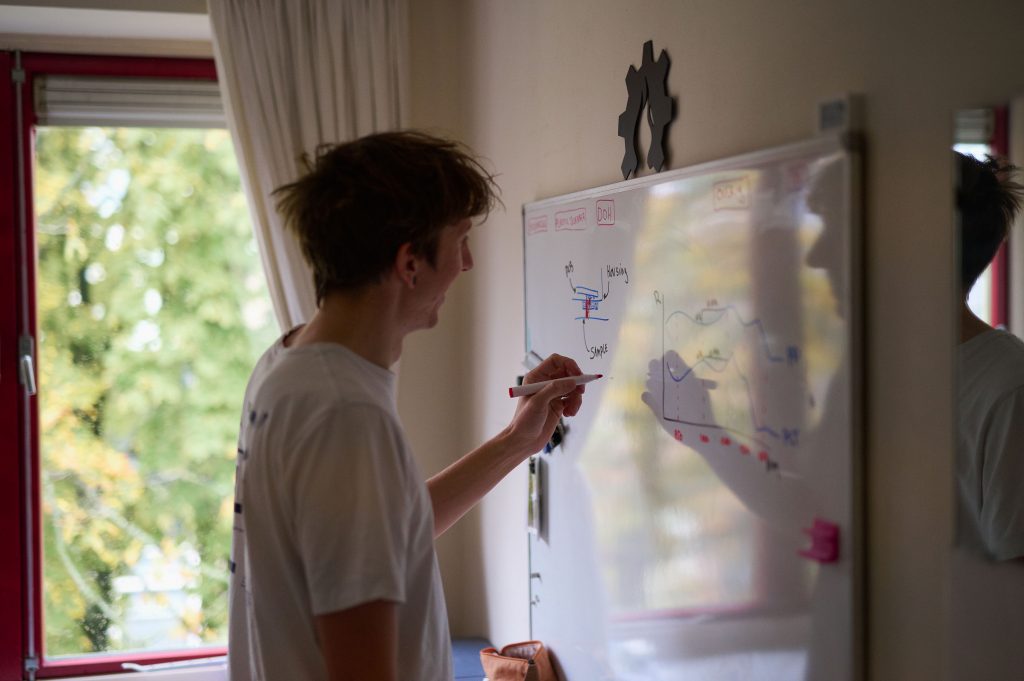
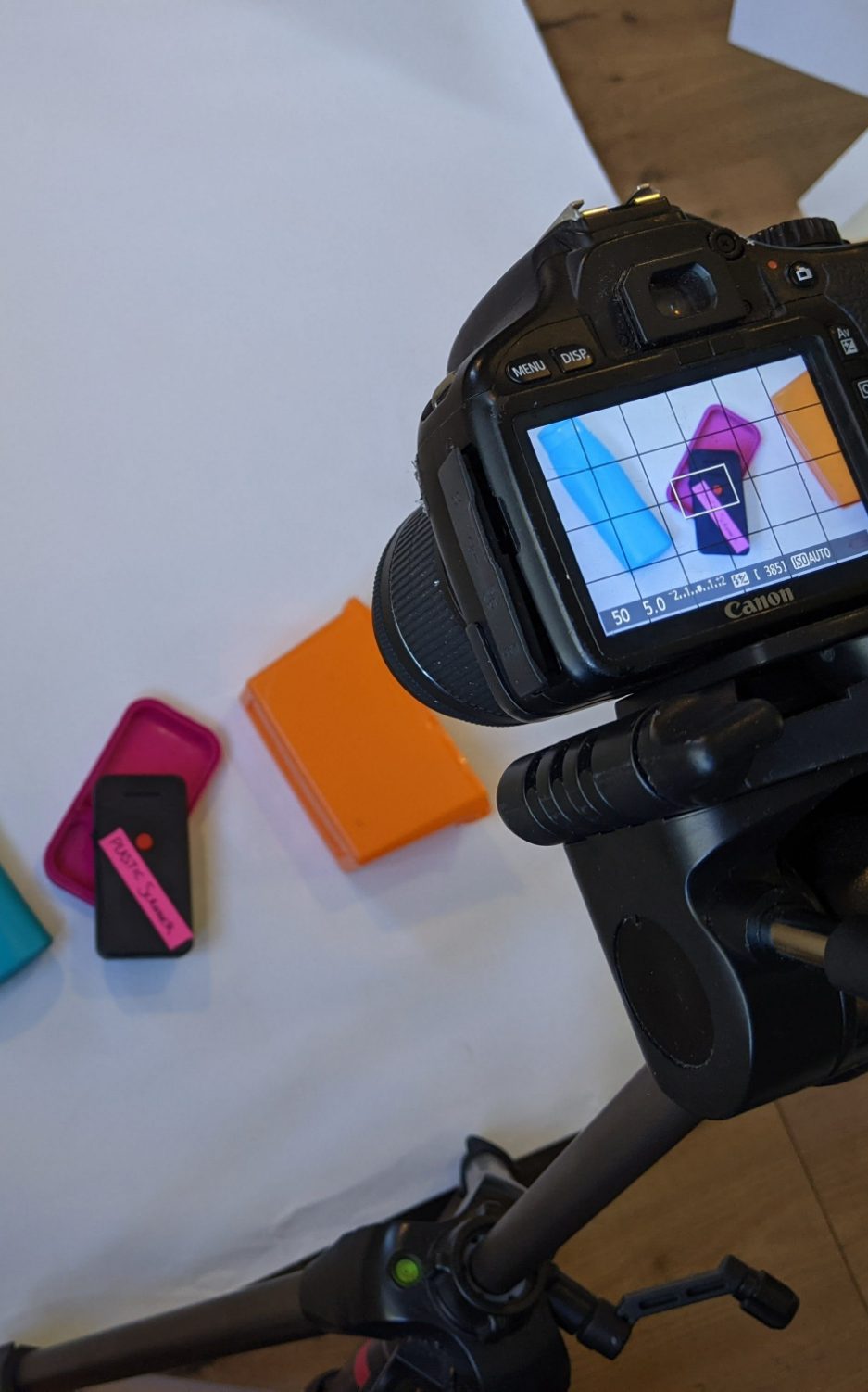
We are really looking forward to this year full of development. The worldwide chip shortage makes it challenging, but we can do amazing things nonetheless and have a jolly good time doing so!
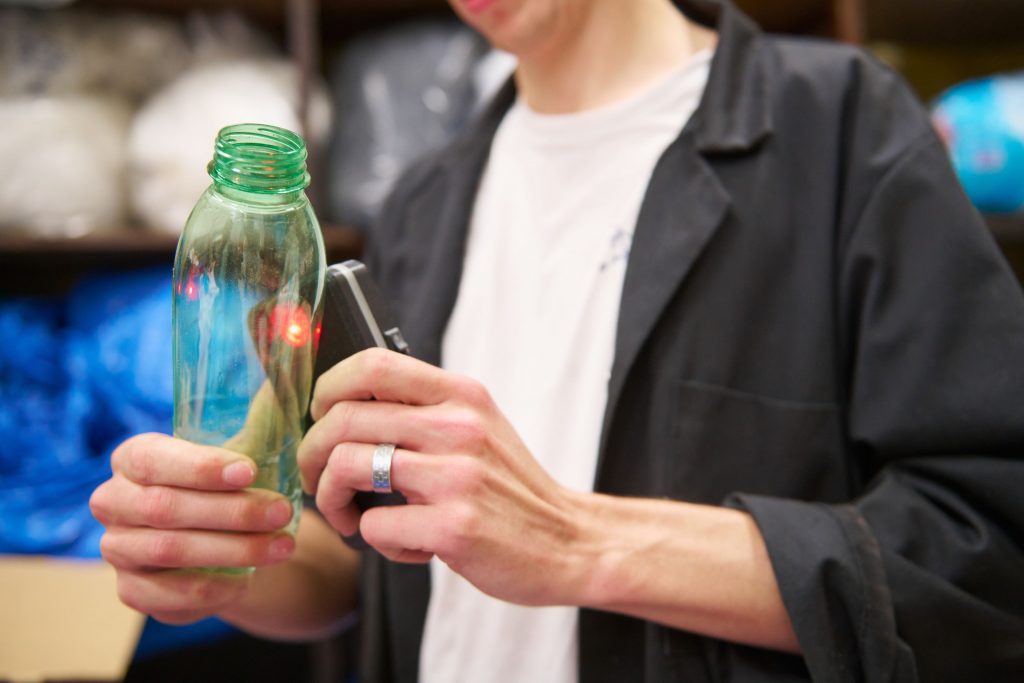
Get Involved.
The plastic scanner is developed by makers for makers. We are looking for all the do-ers around the world, who are happy to use their skills for solving social problems. In order to make the best possible device, we want people of diverse backgrounds to help us with our challenges.
This year we only want to use the resources that are necessary, for the development of the plastic scanner. We currently have a 16 square meter workshop and we want to make sure that all of the money is spent on the project itself. So if you want to help out, we can cover your expenses, and you will become rich, but in experiences and fun, not in money. We also hope to make you proud by being on the credits page!
For the development in 2022, we are still looking for some specific help
| Topic | When? | Description |
|---|---|---|
| Machine learning experts | Q2-Q3 | Part of making the best possible open-source plastic scanner is in the magic of machine learning. We want to prevent putting garbage in, getting garbage out. Although we know a thing or two about machine learning, it would be great to get some help and expertise. The idea is to use Tensor Flow Lite with pre-trained models that can be updated once in a while. We don’t think this is a full-time position, but it does require a certain degree of commitment. Making this possible can make the difference between a Plastic Scanner and a really good Plastic Scanner! |
| Electronics experts | Q1-Q3 | The seemingly simple two-layer PCB can be both fun as well as challenging. Making a board that can easily be replicated during a #chipshortage is an amazing challenge. If you have skills in electronics: circuit- and PCB- design and if you want to fight plastic waste with us, drop us an email. There are a lot of simple improvements possible; component sourcing, PCB routing, etc. |
| Physics experts | Q1 | Although the Plastic Scanner applies a new technique we still need to adhere to the laws of physics. Finding a balance between high-quality spectroscopy and accessibility is a fine line, and if you can walk that line, we need you! We want to make a Plastic Scanner that applies discrete infrared spectroscopy as simple and effective as possible. The better this functions the more plastics that can be identified. |
| Swir camera’s | anytime | These cameras seem to be sensitive to our range of IR light |
| Commercial plastic scanners | anytime | Would be great to benchmark the plastic scanner to commercial scanners! |
| Donations | anytime | Want to help us with some financial support? amazing! Start here |
| Internships | anytime | Want to fight plastic waste AND make cool electronic prototypes? Apply here |
If you already offered your help by sending me an email, then we should already be in contact with you, for example: Tom, Maarten, Rik, Peter, Gregor, Hans, and many more. Your help and offers have been amazing🙏.
Are you ready to join the Plastic Scanner team? Drop us an email with some information about yourself and which of the previously mentioned topics you want to work on.
The Progress.
▓▓▓▓▓▓▓▓▓▓▓░░░░ 75%
The Updates.
- Handheld lasercut versionWelcome to our latest blog post where we dive into the recent advancements in our plastic scanner technology. From hardware upgrades to software improvements and exciting future prospects, we… Read more: Handheld lasercut version
- Testing At MakerspaceGreetings, all! I wanted to share some developments with you from our recent visit to the maker space at the TU Delft Science Center.The maker space had a stash of unknown… Read more: Testing At Makerspace
- Community Starts To Help OutGreetings, all!Welcome to the latest update on our plastic scanner project! In this video, we’re happy to share some exciting developments that have been unfolding recently. From partnerships with local… Read more: Community Starts To Help Out
- From development board to handheld 🤖Greetings, all! I’m back in the Netherlands, right here in the heart of Delft, to update you on the progress we’ve made over the past few months. My holiday… Read more: From development board to handheld 🤖
- 🌞SummerHello, plastic scanner enthusiasts! We’re happy to bring you another exciting update on the progress of the Plastic Scanner project. If you’re new here, the Plastic Scanner is an… Read more: 🌞Summer
- DB2.2Welcome to the latest update on the Plastic Scanner project! Our team has been hard at work creating a device that can identify the most common types of plastic.… Read more: DB2.2
- PS plotHello, lovely people! It’s great to be back with another exciting update on the Plastic Scanner project. As you may know, we’re creating a device that can easily identify… Read more: PS plot
- Endeavor updateBy now, you all know what the Plastic Scanner project is about. But what truly makes this project exceptional is the community that has formed around it. As mentioned… Read more: Endeavor update
- EndeavorsPlastic pollution is one of the biggest environmental challenges of our time. However, through the development of the Plastic Scanner project, we want to provide tools to fight plastic pollution. The Plastic Scanner is an open-source initiative aimed… Read more: Endeavors
Join our once-in-a-month email list and,


